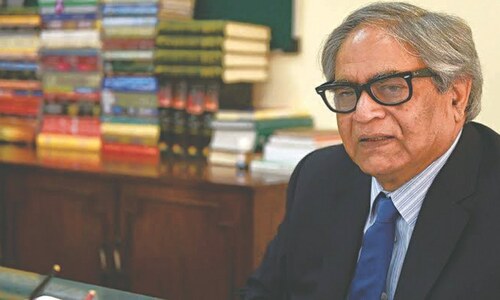In Scott, Marisha Pessl has created an incredibly easy protagonist — he’s believable, likeable and all his questions are answered fairly effortlessly. That all this seems just a little too effortless can easily be considered besides the point, when the plot of Pessl’s second novel, Night Film, moves along as fast and as excitingly as it does.
There are certain echoes of David Lynch’s Twin Peaks when it comes to Ashely, the barely-adult daughter of Cordova who has been found dead at the bottom of an elevator shaft in an abandoned building in an apparent suicide. A child prodigy pianist and a young woman of apparently great genius, Ashley’s suicide is what triggers Scott’s renewed interest in discovering the real Cordova, a search he was forced to abandon after he proclaimed that Cordova should be terminated with “extreme prejudice,” based on unverified information that turned out to be entirely false.
Cordova himself has not been seen for over 30 years, having retreated to a secluded estate in upstate New York. There has been no sighting of him, and the myths around him are so great that many wonder if he has ever existed at all. Are he and his assistant the same person? Is it possible he’s dead? No one seems to know, but Scott is determined to find out. He inadvertently teams up with a perky, overtly-helpful coat check girl originally from small town America and a roguish, handsome young drug dealer with potential ties to Ashley, as he tries to work out the details behind Ashely’s suicide and Cordova’s personal life. Pessl doesn’t hold back on the action or numerous colourful characters. In their investigation, Scott and his motley crew come across Eyes Wide Shut-style underground sex clubs filled with rich socialites and depressed transexuals, a magic shop with an actual wiccan on-call called Cleopatra, a priest who had once been immolated by a very young Ashley, a fabulously well-groomed member of New York royalty and her drunken, possibly insane sister sequestered in a fancy New York city apartment, a washed out ex-starlet, tattoo artists, academics, ice-cold ex-wives and yes, even Scott’s daughter, a cutesy little girl who helps her father in complete innocence, and so is, of course, prime for potential danger. There are deathly curses, black magic, the evil eye, deals with the devil, preternatural movements and frightening folklore, and in case that isn’t enough, even a very long, surreal episode where Scott finds himself hurt and lost, stumbling through many film sets Cordova created, trying to escape from unknown assailants in the underground tunnels on Cordova’s seemingly abandoned estate.
If it all sounds like just too much, don’t worry, it’s not. Night Film is 600 pages long and though it isn’t the greatest writing you’ll come across, it is fast-paced and intriguing, frightening and fun. It’s also incredibly contemporary, with chapters of regular narrative text interspaced with pages of a slide show from time.com, a Rolling Stone article, newspaper articles as they would appear in the web browser Safari, pages of glamour magazines and images and posts from a closed, secret website. Every aspect of Night Film places it very firmly in the modern age, and the short, quick chapters with frequent mini-reveals speed the plot along for a reader with even the shortest attention span. Of course, this all may date the book in many ways, but then Pessl isn’t Raymond Chandler or Stephen King. Night Film will have immediate appeal to today’s readers and that will have to be good enough.
Pessl’s first book, Special Topics in Calamity Physics, was published seven years ago, and she has obviously spent a great deal of time researching and creating the world of Stanislas Cordova for Night Film. She stops short of providing a DVD of Cordova’s films, instead giving a great deal of detail about many of them — their cast and crew, their sets, plots and reception. The director, who Pessl only introduces via second-hand reports, rumours and dodgy online posts, seems to be a strange amalgam of Hitchcock, Kubrick, Bergman and perhaps Argento.
Though Pessl insists that Cordova’s films are subversive and frightening, created to leave deep psychological scarring, they actually seem pretty terrible — pretentious, obvious, and without depth, with terrible names like At Night All Birds are Black. But even then, Pessl works hard at establishing that Cordova has a cult following — so much so that ‘cult following’ itself seems to be a complete understatement; his fans are rabid and obsessive, and even Scott admits, “Cordova’s films were addictive opiates … It was impossible to watch just one minute. One craved more and more.”
There is plenty of bad, clunky writing in Night Film. Whether this is Pessl’s own voice, or that of her protagonist, is unclear. There is excessive use of italics throughout the book — turn to any random page of text and you’ll immediately see half a dozen italicised words, or worse, even entire sentences. Is this Pessl instructing her readers on how to read dialogue? Or is this an affection of Scott’s voice? Pessl tends to liberally pepper her narrative with many, many metaphors — or is it Scott who speaks this way? A seasoned journalist who has won awards and written for multiple internationally acclaimed newspapers and magazines should know better than this, surely? Still, it’s easier to accept this as Scott’s unfiltered thoughts, rather than Pessl’s bad writing. Once you start thinking of it as bad writing, you’re only distracted from the thrills she throws in every few pages, the thrills that basically make this book as enjoyable as it is, regardless of where the writing fails and the few places where the plot is left untethered.
Night Film
(NOVEL)
By Marisha Pessl
Random House, UK
ISBN 9780091953782
600pp.















































Dear visitor, the comments section is undergoing an overhaul and will return soon.